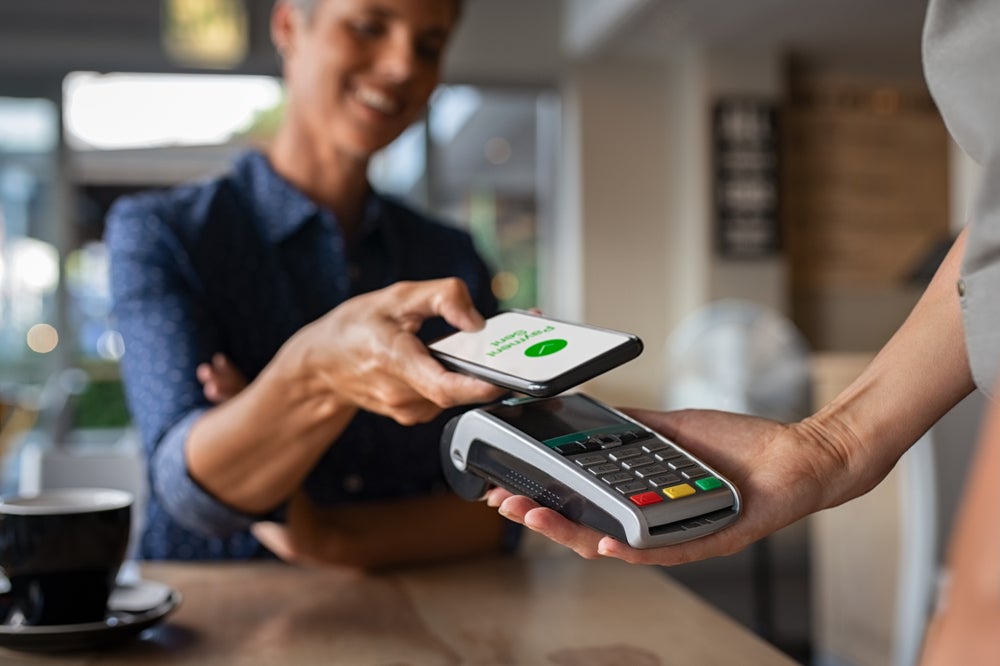One of the challenges in extending person-to-person (P2P)
payments within the banking industry – and one of the reasons the
industry has been relegated to an observer of the P2P phenomenon –
is that traditional systems drive consumers away from bank websites
to make the payments.
Why, banks have asked, should they encourage a
payment form that by its very nature asked its customers to leave
online banking sites and deposit money in non-bank accounts?
Fiserv apparently wondered as well, and set to
work developing the bank-aligned alternative: a P2P system that
stays within the bank itself – customers can easily send money from
their bank account to any other bank account, online but also
through mobile devices, with no need for consumers to share account
information with third-parties.
Fiserv intends launching the US service in the
first half of 2010, initially offering it to the 3,100 financial
institutions and their customers using its CheckFree online bill
payment platform. This initial launch will be followed by an
extension of the service to all 16,000 financial institution
clients across the US financial technology giant’s footprint.
Using an email address or mobile phone number,
consumers will be able to send money to anyone they know. Payments
will be deposited directly into the recipient’s account and
confirmation of payment will be sent to the recipient’s email
address or mobile number.
The payer will be able to create a profile for
anyone they want to send money to through Fiserv’s bill payment
network of more than 3,000 institutions with an email address or a
mobile phone number, and Fiserv will also begin creating a registry
for consumers to sign up themselves.
How well do you really know your competitors?
Access the most comprehensive Company Profiles on the market, powered by GlobalData. Save hours of research. Gain competitive edge.

Thank you!
Your download email will arrive shortly
Not ready to buy yet? Download a free sample
We are confident about the unique quality of our Company Profiles. However, we want you to make the most beneficial decision for your business, so we offer a free sample that you can download by submitting the below form
By GlobalDataPayments will be securely processed through
Fiserv’s online payment network, making use of Fiserv’s FraudNet
automated ant-fraud system to detect and prevent fraudulent
transactions.
Underpinning Fiserv’s move into the P2P
payments market, a consumer survey it conducted in June 2009 found
significant interest in personal payments, with 70 percent of those
surveyed expressing interest in such a service.
Indicating the significance of linking a P2P
service to financial institutions, Fiserv found that three quarters
of respondents would prefer a service offered by their financial
institution. An even higher 83 percent said it is important for
money to be deposited directly into a recipient’s bank account, as
opposed to other methods.
Consumers who said they would use a P2P
service cited many potential uses including:
• Sending money to someone (88
percent):
• Making a donation to charity (53
percent);
• Requesting money from someone (43
percent); and
• Collecting or contributing to a
group gift (40 percent).
According to Fiserv, consumers who said they
would use a personal payment service estimated they would do so an
average of three times per month, and the top benefits would be
eliminating the hassle of cash or cheques (80 percent) and greater
convenience (77 percent).
Mobile payments spin-off
Steve Shaw, internet banking and
electronic payments group director for Fiserv, told EPI the P2P
service also addresses the desire among banks to be at the heart of
mobile P2P payments.
“This is something we have been working on for
a while, and the key is not having to add people as a payee, or
making them go through a bunch of steps, or fund a separate account
just to pay someone,” Shaw said.
“The demographic targeted by this service is
used to being online and they not only want to make mobile
payments, they see it as the only logical way to pay for things.
They have a real desire for simplicity, and they do not want to
fund a PayPal account in addition to their bank account.”
Shaw continued that banks have long wanted a
P2P alternative which keeps them at the centre of the payments
relationship, and are concerned about losing deposits parked in
alternative P2P accounts.
“Consumers are showing an increasing
preference for managing their finances online, and it is natural
for them to turn to their trusted financial institution for any
payment service, whether it is a bill payment or a personal
payment,” said Shaw.
“We want to make sure they can handle all
their payments from right on their online banking screen.”
Huge potential
Latent demand for P2P payments
services appears to be substantial. According to Andy Schmidt,
research director for Global Payments at consultancy TowerGroup,
consumers make approximately nine billion personal payments each
year, and the majority of these payments are currently made with
cash and cheques.
“P2P payments include repaying other
consumers, moving funds between accounts at different banks,
supporting family members, and paying for informal purchases or
services rendered,” Schmidt said.
“Consumers need simple, low-cost, and
convenient alternatives to cheques with flexible funds
accessibility.”
Fiserv is the latest of several payment
companies developing systems that enable consumers to send each
other funds electronically with mobile phones. These networks are
big, but they are not connected, and though observers say this
limitation is not a big issue today, it will have to be addressed
before the technology can become a mainstream financial
utility.
CashEdge, which introduced its own P2P service
in June this year, said in a statement issued in early November
that it expects four banks, including one of the top 10 by assets,
to be offering its service by year-end.
CashEdge and Fiserv join a growing number of
financial companies, including banking group Citigroup, MasterCard
and Visa that are developing or testing mobile phone systems to
route funds to and from users’ bank accounts.
Shaw said that Fiserv already is marketing the
service to its bill payment clients in anticipation of a mid-2010
launch.
“We are really enthused by the early response,
and we will have some partners announced here really soon,” he
said. “This product addresses a real need, and the time is right
for a bank-centric P2P model.”







